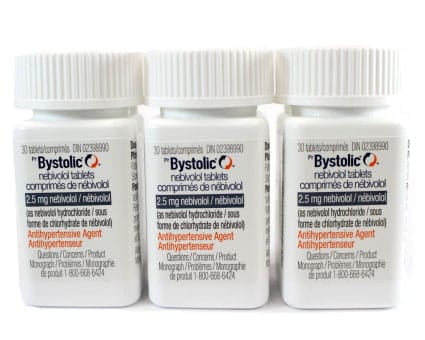What is bystolic? Bystolic is a medication used to treat high blood pressure and heart failure. It is a type of beta blocker, which works by blocking certain receptors in the heart and blood vessels. In this article, we will explore what Bystolic is, its uses, dosages, precautions, side effects, and interactions with other medications.
It is a medication that contains the active ingredient nebivolol. It works by blocking the beta-1 receptors in the heart, which slows the heart rate and decreases the amount of blood the heart pumps out. This helps to reduce blood pressure and the workload on the heart.
Uses of Bystolic
Bystolic is used to treat high blood pressure, also known as hypertension. High blood pressure can lead to serious health problems such as heart attacks, strokes, and kidney damage. Therefore it is important to keep it under control. It is addresses these problems by slowing the heart rate and decreasing the amount of blood the heart pumps out, which helps to lower blood pressure.
Bystolic also treats heart failure, a condition where the heart is unable to pump enough blood to meet the body’s needs. Bystolic reduces symptoms of heart failure and improve the heart’s ability to pump blood.
It is important to note that Bystolic should be used in combination with a healthy lifestyle, including a healthy diet and regular physical activity, to achieve optimal results. The specific use of Bystolic and the recommended dosage will depend on the individual’s medical history and other factors, so it is important to follow the healthcare provider’s instructions.
Dosage and Administration
It is taken orally, usually once a day. The recommended starting dose is 5 mg daily and can go up to 40 mg. The dosage may be increased gradually until the desired blood pressure is achieved. The specific dosage depends on the individual’s medical history and other factors, so it is important to follow the healthcare provider’s instructions.
Precautions and Side Effects
Common side effects
- Dizziness
- Headache
- Fatigue
- Cold hands and feet.
- Nausea
- Diarrhea
It is important to inform the healthcare providers about any side effects from Bystolic. Alcohol and certain other medications, such as blood pressure medications, heart medications, and antidepressants may interact with Bystolic and compromise its effectiveness. Therefore, it is important to inform the doctor about all the other medications you are taking. The doctor may recommend a different medications or adjust your doses to avoid any adverse effect during your treatment.

